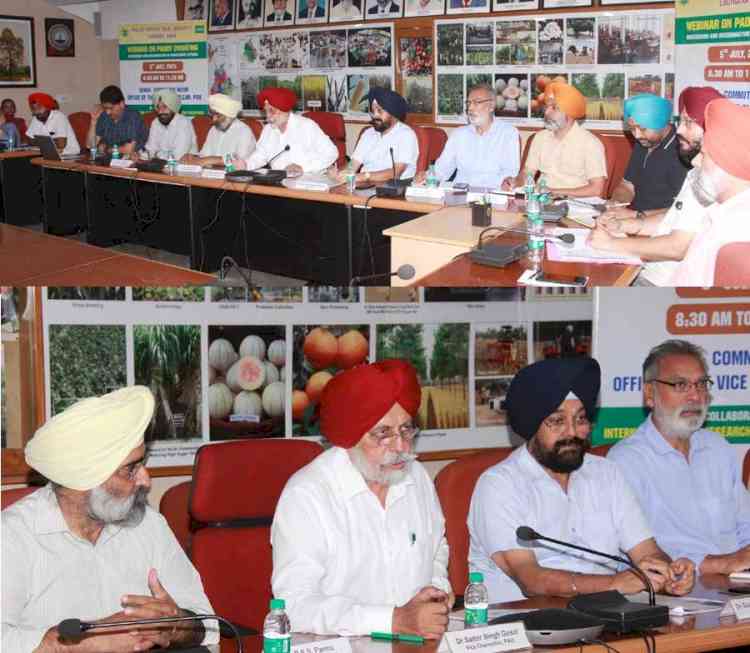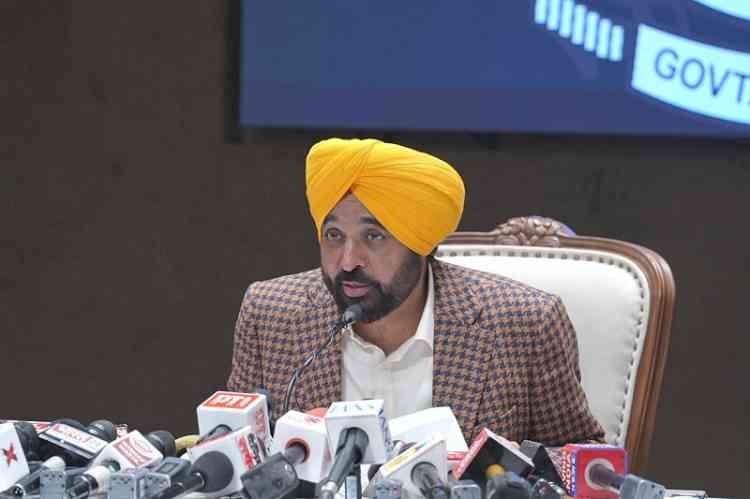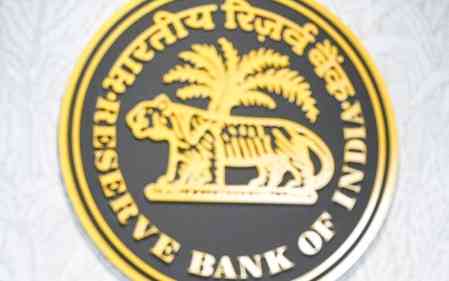New Insights on Paddy Dwarfing Disease and its Management Shared in a Webinar at PAU
“Pooling of wisdom by floating inter-institutional projects can be highly rewarding in countering the dwarfing disease in paddy.” This was stated by Dr Satbir Singh Gosal, Vice-Chancellor of Punjab Agricultural University, Ludhiana, in his remarks while chairing a Webinar on Paddy Dwarfing at the campus in which about 100 scientists from India as well as abroad participated. The international webinar was organized in collaboration with International Rice Research Institute, Philippines.

Ludhiana, July 5, 2023: “Pooling of wisdom by floating inter-institutional projects can be highly rewarding in countering the dwarfing disease in paddy.” This was stated by Dr Satbir Singh Gosal, Vice-Chancellor of Punjab Agricultural University, Ludhiana, in his remarks while chairing a Webinar on Paddy Dwarfing at the campus in which about 100 scientists from India as well as abroad participated. The international webinar was organized in collaboration with International Rice Research Institute, Philippines.
Dr S.S. Gosal revealed that the reports of a mysterious dwarfing disease started to pour in from the North Indian rice-growing regions of Punjab and Haryana during the kharif 2022 season. PAU researchers were the first in the country to determine the cause of this disease. Caused by Southern Rice Black Streaked Dwarf Virus (SRBSDV), Punjab alone witnessed an impact on approximately 34,000 hectares of land, he added. Originating in China, it spread to Vietnam, Japan, and beyond, carried by the White Backed Planthopper (WBPH) insect. From the Indian perspective, there are many researchable points such as the origin and spread of this disease as well as survival during off-season. Dr Gosal stressed that this rice problem necessitates a comprehensive approach from biological, agronomic, and ecological viewpoints. He also advocated the integration of modern tools like AI and IoT for accurate forecasts and diagnosis of such diseases.
Dr R.N. Sundaram, Director of ICAR-Indian Institute of Rice Research (ICAR-IIRR), Hyderabad, shared his observations regarding the various presentations on the subject and voiced the directions for the future line of work. He suggested intensifying field surveys, deriving lessons from the management strategies employed in Vietnam and China, standardizing seed treatment, developing precise diagnostic tools and studying virus-vector-host relationships.
Dr V.K. Baranwal, National Professor, ICAR-IARI, New Delhi, underscored the role of standardized and uniform detection methodology for SRBSDV across different laboratories for efficient monitoring. He also suggested developing a quick nucleic acid-based on-field detection assay so that the farmers can introduce disease mitigation strategies on time. Dr Van Luu from IRRI proposed to establish an SRBSDV surveillance and monitoring network across South-East Asia and South Asia (SRBSDV-BioNET) under the ambit of the OneCGIAR Plant Health Initiative. She also recommended initiating work on modeling the SRBSDV disease occurrence using a combination of geographic information, weather, agricultural practices, and vector and pathogen genetics.
Dr Hoang Anh Ta, Deputy Head, Plant Pathology and Immunology Division, Plant Protection Research Institute, Vietnam briefed about SRBSDV disease mitigation strategies developed by them and adopted by Vietnamese farmers. He emphasized the need to monitor and manage vector populations right from the nursery stage onwards. Dr Tong Zhang, Associate Professor, South China Agricultural University highlighted that understanding the biology of insect vector, WBPH, is very critical to develop region-specific disease management strategies. He further opined that cultural practices such as choice of varieties, planting dates and rice ecology also influence disease development. From PAU, Dr Kamaljeet Singh Suri and Dr Mandeep Hunjan presented an overview of the SRBSDV outbreak in Punjab in 2022.
Dr G.S. Buttar, Director of Extension Education conveyed that PAU has already formulated an adhoc disease management strategy and an extension pamphlet highlighting management tactics to tackle SRBSDV. The information has been transferred through the extension services network of PAU, PAU publications, press media, farmer-scientist interactions and also through the online social media handles of PAU. He disclosed that Punjab farmers have been asked to exercise caution as the paddy transplanting is underway to avoid experiencing the same problem this year.
Earlier, Dr. P.S. Sandhu, Head of the Department of Plant Pathology, and Dr P.P.S. Pannu, ADR (NR&PHM) explained the significance of the webinar in the current situation. Dr Sandhu claimed that the Department is adequately equipped to detect SRBSDV infection and that department scientists are diligently monitoring weeds and other known crops that have been described as alternate hosts of the SRBSDV.
The presentations were followed by a panel discussion in which scientists from different departments of PAU, IRRI Philippines, PPRI Vietnam, SCAU China, ICAR-IARI, ICAR-IIRR, and IRRI India, CCSHAU, Hisar; and Heads of Plant Breeding and Genetics, Agronomy, Entomology and Director School of Agricultural Biotechnology, PAU, participated. A flurry of ideas was exchanged on short-term strategies like surveillance, migration of vectors with SRBSDV, virus-vector-host relationship, weed management etc., and long-term strategies like breeding strategy, biotechnological tools and forecasting and weather conditions. The programme and discussions were ably moderated by Dr J.S. Lore and Dr Vishal Bector of PAU.
In the end, Dr R.S. Gill, In-Charge, Rice Section, proposed the vote of thanks.


 City Air News
City Air News 










